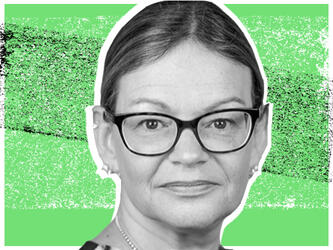Unlocking the curse of convenience: Our duty to people and planet

Senior marketers have identified radical innovation as the biggest opportunity, not only to make a difference to the planet but also to a company’s competitive advantage (Sustainable Marketing 2023 ). They ranked radical innovation above communication in its importance, which given the increasing backlash to greenwashing, is no surprise.
This more radical innovation will require businesses to switch from product only to product-service driven solutions and from creating more ‘stuff’ to an experience-driven focus. Radical innovation will involve big leaps such as designing new business models anchored in the concept of circular systems, rather than more incremental changes, like a packaging tweak. Accompanying these changing systems there must also be the normalisation of a new set of consumer behaviours to drive more sustainable choices.
The big challenge for the normalisation of these new behaviours, however, is the curse of convenience. Our latest sustainability research identifies that the biggest frictions to sustainable choices (beyond price) are the challenges associated with knowing which product to choose, being able to find sustainable products and the effort involved in being sustainable. It also reveals that these frictions are most pertinent to those less engaged in sustainability; these groups account for over three-quarters of the world’s population (Kantar, Sustainability Sector Index, September 2023 ). The challenge of circularity, and in particular important innovations such as refills, is compounded by the fact that inconvenience introduced across the product lifecycle is even more significant.
The time has come for market researchers to take a different approach, to unlock the real opportunities to design products that create new behaviours and design for positive behaviour change. To do this they must understand more deeply the contextual factors influencing choice and consumer behaviour using techniques and philosophies from behavioural science to unpack the frictions and design for change. We call this ‘designing for success’. For example, brands like Pangaia are introducing seamless ways to resell their products by making the process frictionless, through integrating resell options into their platforms.
Another example is Mastercard carbon footprint tracking. Their partnership with Doconomy enables them to collaborate to make it easy for consumers to make the right choice, with consumers able to understand and track their CO2 footprint through carbon offsetting. The challenge, however, is for some that sustainability isn’t top of mind when making choices (Kantar, Sustainability Sector Index, 2023 ). Therefore, we need to focus on changing behaviours first and tackle the curse of convenience.
The challenge, as Rory Sutherland recently commented, is that there is no department or budget for behavioural science (Kantar Futureproof Podcast, Sept 2023 ). What behavioural science helps you with is not only unpacking the factors influencing consumer behaviour, but also exploring the less obvious path to a new solution. For example, introducing extra, less convenient steps can actually add value to the process. Betty Crocker recognised this when they found that adding an egg to their packet cake mix makes the cake process feel more genuine.
We as market researchers need to open our marketers’ minds to new ways of thinking about radical innovation and circularity; it is our responsibility to our industry and our planet. We need to be working with brands to help them adopt behavioural science thinking and to take a different path. To use our qualitative, quantitative and analytics capabilities to unpack the factors influencing more sustainable choices and support clients to factor them into their radical innovation designs. For one client, we found that the biggest limitation to the adoption of more sustainable energy sources was the inconvenience in upfront payments. Simply by identifying and supporting them to think about introducing more bite-size payment options, we were able to unlock increased adoption of more planet-positive choices.
Ask yourself today: how can you help design radically new products, services business models and experiences to drive positive behaviour change?
Dr Nicki Morley is head of behavioural science and innovation expertise at Kantar UK

We hope you enjoyed this article.
Research Live is published by MRS.
The Market Research Society (MRS) exists to promote and protect the research sector, showcasing how research delivers impact for businesses and government.
Members of MRS enjoy many benefits including tailoured policy guidance, discounts on training and conferences, and access to member-only content.
For example, there's an archive of winning case studies from over a decade of MRS Awards.
Find out more about the benefits of joining MRS here.














0 Comments